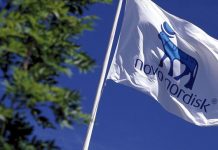PHILADELPHIA — It’s not artificial intelligence or creative corporate structures that some of the biopharma industry’s leaders see as the best way to boost R&D productivity — rather, it’s simply attracting and keeping talented people.
“We’ve got to engage the best and the brightest minds in the toughest problems facing mankind, and in my mind that’s healthcare and climate change,” Regeneron co-founder and chief scientific officer George Yancopoulos said Wednesday at the Biotechnology Innovation Organization’s annual meeting. “And we’re not doing that.”
The outspoken, long-time leader of Regeneron made a call for changing the public narrative of the drug industry in order to attract young talent, saying society should view its former leaders positively.
He contrasted his own childhood experience, in which he drew inspiration from President John F. Kennedy’s speeches highlighting science and technology, with today.
“Now I think that we don’t hear that anymore,” he said. “Science has become a bad name, and a worse name is biopharma.”
The industry has earned that reputation through regular controversies over high prices on prescription medicines, which critics argue are excessive. In response, companies and trade groups have sought to bring more attention to advances in science which have enabled new technologies like gene therapy.
“If we don’t engage the brightest young minds to solve our toughest problems, those problems are going to wipe us out,” he added. In 2017, Regeneron took over from Intel as the third sponsor of the Science Talent Search, which Yancopoulos won in 1976.
Other biopharma leaders agreed with Yancopoulos’ focus on recruitment.
Marion Dorsch, chief scientific officer at Blueprint Medicines, called talent retention the most important factor to boosting R&D productivity, which has recently faltered across the industry.
“The industry is really suffering from turnover,” Dorsch said. “In Cambridge, this is a huge challenge. And the new generation of scientists that are coming along, they are even more impatient.”
Scientists bouncing from company to company can cause instability, as well erode institutional knowledge around experimental medicines, the execs said. New therapies can take years if not decades to come through to markets, making the staff tasked with pushing clinical research forward invaluable, they said.
John Reed, Sanofi’s global head of R&D, said he faces a different kind problem at the French pharma giant.
“You can tell this is a U.S.-centered group,” Reed said, speaking on the panel. “[At a] European company, you have exactly the opposite problem. Turnover rates are less than 1%.”
Still, Reed listed talent as the top priority in improving R&D.
“People talk about: At big pharma companies, despite the fact that we have hundreds of chemists, particularly it’s just one or two chemists that invent all the drugs,” Reed said. “There’s just a couple of very talented people who do all the heavy lifting.”
Without a change to the public perception of drugmakers, the exec feared rising talent will choose to go into other industries instead.
That worry is even more acute when considering technologies like machine learning, where pharma competes with tech companies from Silicon Valley.
“We need more genius minds getting in this field, and we, as a society, are putting these fields down and saying, ‘oh evil empires, horrible people who don’t get anything done,'” Yancopoulos said.
“Do you want them to really go become hedge fund managers instead, the smartest kids in America? I don’t think so.”








